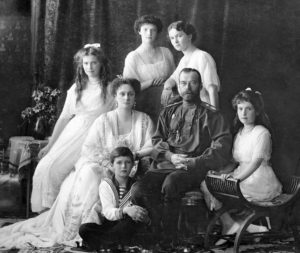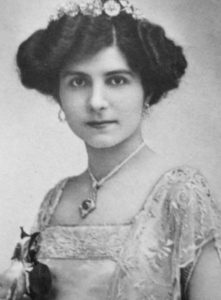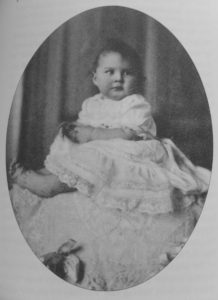
The Night The Dynasty Died
“When I am dead, I will not hurt anymore, will it Mama? When I am dead, build me a little monument of stones in the woods.” From the diary of Tsarevich Aleksei Romanov

In the earliest morning hours of 17 July 1918, the Imperial Family of Russia was murdered in a Siberian basement. This part of the story is well known. Communism was rolling over the Russian Empire, sweeping away the privileged noble class in its wake. This part of the story is also well known. The Imperial Family had been set upon the path to their doom the moment Tsarina Alexandra had been introduced to the starets – holy man- Rasputin. This is probably the best known fact about the end of the Romanovs.

But flitting around the edges of the official narrative is another screenplay, a background story every bit as intriguing as the direct path from palace to execution: the role of the Balkans in the end of the Russian Empire.
The Southern Slav states of Europe were used as the front lines for the struggle between Western and Eastern Europe from the time of the Christian Schism. The Austro-Hungarian Empire and the Russian Empire were in a constant contest to shift their sphere of influence over the Balkans, and Balkan leaders attempted to use these shifts to their advantage. Post-Ottoman independence, the battle for influence played out between the two rival royal families of Serbia, with the Obrenović feeling a greater pull toward Austria and the West, and the Karađorđević tending toward Russia and the East.
During the years of Karađorđević exile, the children of the family were educated in Russia and welcomed warmly by the Imperial Family. Grateful, the future King of Yugoslavia, Alexander, became a consuming Russophile. His Montenegrin aunts married Russian princes as did his sister Jelena. After the Karađorđević family was restored to the Serbian throne in 1903, King Petar I began informal negotiations for Alexander to marry the Tsarevna Tatiana, the second Romanov daughter.

Meanwhile, back at the Russian court, Alexander’s Montenegrin aunts were great friends with the Tsarina Alexandra. Anastasia and Militza were so close with Alexandra, in fact, that they were the people responsible for introducing her to Rasputin.

And, as we all know from the official narrative, it was Rasputin that set in motion the downfall and murder of the Russian Imperial Family.
But that was still several years in the future, and in the meantime Prince Alexander of Serbia was still hoping for a marriage to the Tsarevna Tatiana. The two stayed in correspondence during the Great War, while Alexander was kept apprised of the events in Russia through his older sister Jelena, now married to a Russian prince herself.
The end came quickly for the Russian Empire. In February 1917 Tsar Nicholas II abdicated in favor of his brother. In March he and his family were taken into custody by the Provisional Government of Russia. As a Prince and a member of royalty, Jelena of Serbia’s husband was also taken into custody. She voluntarily accompanied him, but in June 1918 he begged her to return to their children. She never saw her husband again.

The Russian Imperial family were murdered in the early morning hours of 17 July 1918 in Yekaterinburg. Prince Ivan, the husband of Jelena, was murdered that day as well. Jelena of Serbia and her children, Vsevolad and Katerina, managed to escape to the West. Vsevolad was the last male member of the Russian Imperial family to be born on Russian soil.
He did not have a happy life.

Prince Alexander of Serbia was devastated by the death of Tatiana, and stunned by what happened to the Russian Imperial family. He would spend the rest of his life nurturing a hostility to the Soviet Union, and he welcomed refugees from Russia to Serbia. The lost possibility of a Romanov/Karađorđević match strikes such a chord that there is even a genre of alternate history where Tsarevna Tatiana survives to marry Alexander. Things turned out much better for the world in that imagined timeline.
Which just goes to show that even though the Balkans’ importance in the grand scheme of history is often ignored, it is certainly understood.
- July 17, 2020
- History , Interesting
